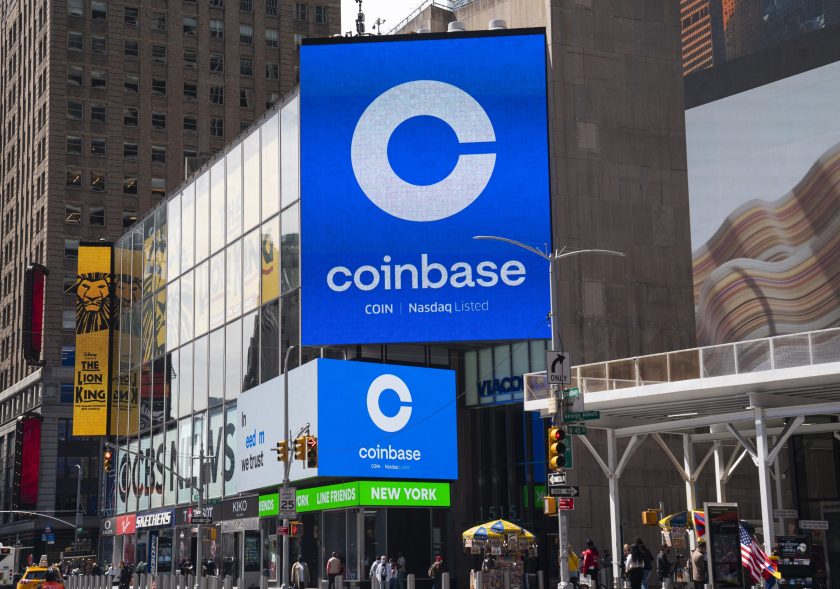
Coinbase, one of the largest cryptocurrency exchanges in the world, went public in 2021. Robert Nickelsberg—Getty Images
Nikhil Wahi, a 27-year-old crypto trader whose brother worked for Coinbase, agreed to pay the publicly traded cryptocurrency exchange $469,525.50 for his role in an insider trading scheme.
The court filing, which was signed on April 6, was made public on Monday. In September, Wahi accepted a plea deal with the Department of Justice.
Nikhil’s attorneys did not immediately respond to a request for comment when contacted by Fortune. A Justice Department spokesperson also did not respond, and Coinbase declined to comment.
“Illegal insider trading has real consequences where and when it occurs,” U.S. Attorney Damien Williams said in a statement after Nikhil was sentenced to 10 months in prison in January.
Nikhil’s restitution payment is the latest development in the fallout from an insider trading scheme that has potentially industry-wide ramifications. It is also the first time, according to the Department of Justice, that insiders who exploited cryptocurrency markets have been successfully prosecuted.
In a separate civil case, the Securities and Exchange Commission sued Nikhil, his brother, Ishan, and Sameer Ramani, another alleged member of the scheme, for violating anti-fraud provisions of securities laws.
From June 2021 to approximately April 2022, Ishan, the head of Coinbase, conspired with Nikhil and Ramani — who were also not Coinbase employees — to buy crypto tokens before they went public, according to the original Justice Department indictment.
Due to his position at Coinbase, Ishan knew when the exchange planned to list new cryptocurrencies. On several occasions, he informed his brother and Ramani of the launch dates for the assets, and they bought them in advance. When Coinbase announced the listing of these assets, their prices inevitably rose, given the importance of the exchange in the industry, and the three conspirators sold them for a profit.
Ishan separately agreed to a plea deal with the Justice Department in February. His sentencing is scheduled for May 10. Ramani, as the DOJ last reported, remains at large.
Coinbase, a victim in the criminal cases, surprisingly came to the defense of the Wahis and the Ramanis. Along with other blockchain boosters like venture capital firm Paradigm, he filed a “friend of the court” brief. They argue that the SEC lacks jurisdiction to sue because the tokens Nikhil Wahi and Ramani purchased before listing on Coinbase fail the Howey test, a legal doctrine that assesses whether an asset is a security.
The age-old debate over whether cryptocurrencies are securities has potentially existential implications for U.S.-based crypto firms, which, if the SEC’s argument prevails, would be subject to a increased regulatory scrutiny and a host of potential fines.